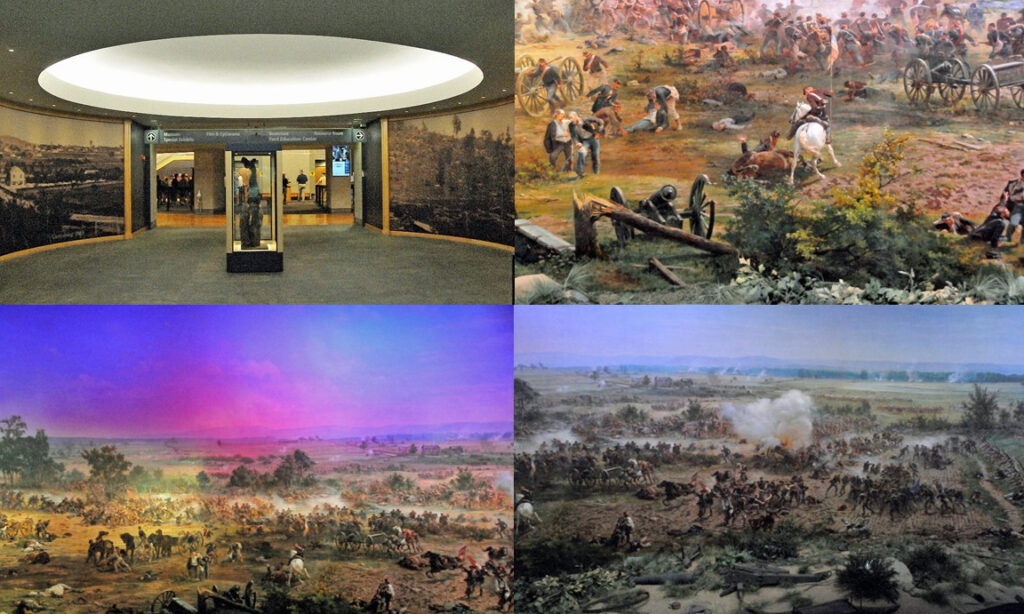Today, in our continuing road trip, we visit the extraordinary Battle of Gettysburg Cyclorama.
In the late 1800s, cycloramas were a popular form of entertainment. Massive oil-on-canvas paintings of important historical events, mounted on the walls of circular buildings, surrounded an audience standing on a central platform. Added sound and lighting gave the sensation of being at the center of the action. In 1879, a group of entrepreneurs hired Paul Philippoteaux, a French artist, to create a cyclorama of Pickett’s Charge during the Battle of Gettysburg on July 3, 1863. Philippoteaux visited the battlefield, acquired photographs and talked to veterans. After several weeks in Gettysburg, he returned to his studio, where he and his assistants spent 18 months applying tons of paint to huge sections of canvas. The Cyclorama of the Battle of Gettysburg opened in Chicago in 1883, with an earthen foreground littered with relics of the battle. The cyclorama was a huge commercial success, so another entrepreneur hired Philippoteaux to create a duplicate, which opened in Boston in 1884.
When the Boston cyclorama closed after 20 years, a Gettysburg entrepreneur purchased it and opened it to the public in a round building on East Cemetery Hill, in time for the 50th anniversary of the Battle of Gettysburg in 1913. The National Park Service acquired the cyclorama in the 1940s and opened it in the Gettysburg National Military Park visitors’ center on Cemetery Hill in 1962. Beginning in 2003, the cyclorama underwent a $13,000,000 restoration. It re-opened to the public in 2008 in a theatre in the new visitors’ center, now located away from the battlefield. The canvas, incorporating 14 sections, is 377 feet long, 42 feet high and weighs 25,000 pounds. Lights and sound help give visitors a sense of being at the center of the ferocious climactic battle of the Civil War.
